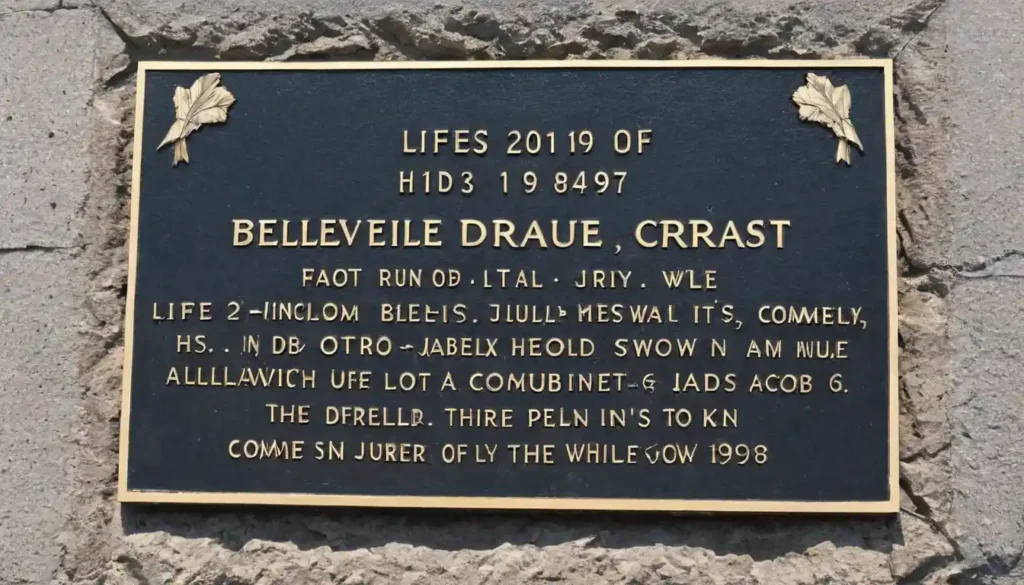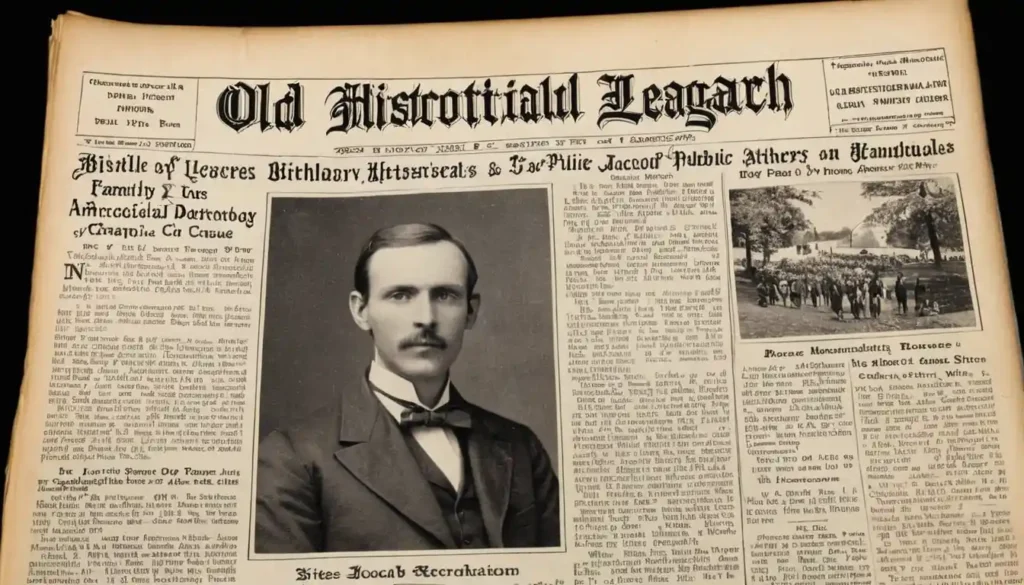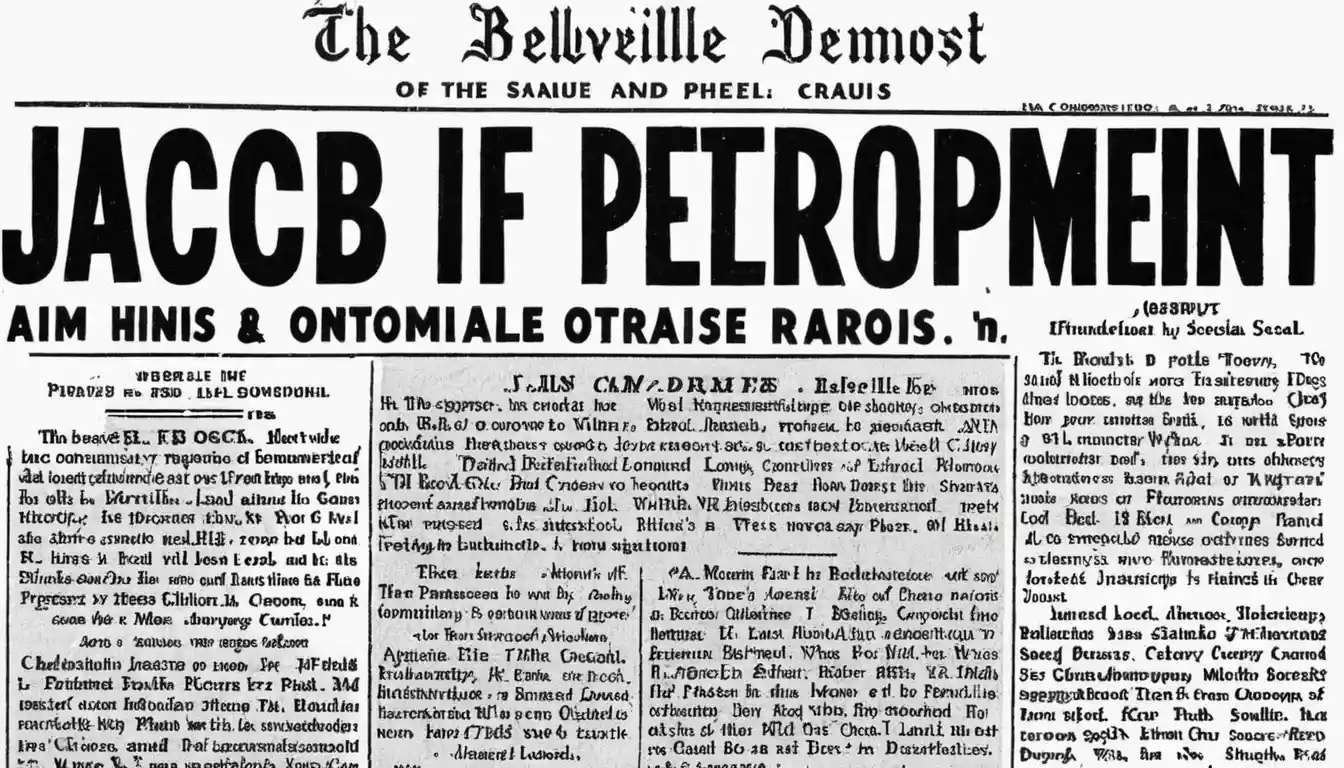The obituary of Jacob Crause, published on October 4, 1929, in the Belleville Democrat, stands as a remarkable historical document. This article will dive deep into his life, his contributions to Belleville, Illinois, and the historical significance of his obituary.
We will also analyze how early 20th-century obituaries, like Crause’s, differ from those in today’s digital age, and explore the crucial role of newspapers like the Belleville Democrat in preserving local history.
Historical Context – Belleville in 1929
To understand the significance of Jacob Crause’s obituary, it’s essential to first look at the backdrop of Belleville, Illinois, in 1929. The town was at a crossroads—experiencing economic progress, but on the cusp of the Great Depression.
This period was marked by industrial growth, particularly in steel manufacturing, and a blossoming local community. The obituary of a well-known local figure like Crause in this era reflected the strong sense of civic pride and the intertwined nature of business and community development.
Read Also: Starhoonga – Unlock Your Potential
Economic and Social Landscape of Belleville
In 1929, Belleville was a town defined by both industry and agriculture. The local economy was thriving, and the social fabric was knit together by an active participation in civic life. The Belleville Democrat was an important source of news for the residents, and the death of prominent individuals such as Jacob Crause was an event that brought the community together, offering a moment for reflection on local progress and leadership.
The Role of the Belleville Democrat Newspaper
The Belleville Democrat was an influential voice in the community during the early 20th century, and it played an essential role in shaping public memory. By publishing obituaries like the one for Jacob Crause, the newspaper preserved the legacies of influential figures and helped maintain a sense of community history. The 4 Oct 1929 obituary serves as a perfect example of how local newspapers helped document important lives and events.

Preserving Local History
Obituaries were not just about announcing a death but about documenting the life and times of those who had impacted the community. By publishing such obituaries, the Belleville Democrat ensured that readers understood the contributions of people like Jacob Crause, offering a historical record that could be referenced by future generations.
Jacob Crause – Life and Legacy
Jacob Crause was a prominent figure in Belleville, known for his entrepreneurial spirit and deep commitment to the welfare of his town. Born in the mid-19th century, Crause grew up during a period when Belleville was transitioning from a small village to a thriving industrial hub. His life reflects the broader trends of this transformation, and his contributions to the town were both professional and personal.
Early Life and Career
Details about Crause’s early life are sparse, but it is clear that he made a significant impact on Belleville. Like many others of his era, he came from humble beginnings but managed to establish himself as a key figure in the town. Whether through business ventures, community organizations, or other forms of civic engagement, Crause became a person whose contributions would outlive him.
Contributions to Belleville
Crause was not just a businessman; he was a civic-minded individual. His contributions to Belleville were broad, ranging from involvement in local businesses to support for community initiatives. His work helped shape the town’s development, and his leadership in various civic projects earned him respect across Belleville.
Personal Life and Community Involvement
Beyond his professional success, Jacob Crause was also a devoted family man and an active participant in local organizations. His community involvement is one of the reasons his obituary felt like a personal tribute to someone who was deeply loved by those around him. The Belleville Democrat obituary reflected both his public and private life, painting a full picture of a man whose legacy extended beyond just business.
Analyzing the 4 Oct 1929 Jacob Crause Obituary Belleville Democrat
The obituary published in the Belleville Democrat on October 4, 1929, follows the typical structure of early 20th-century obituaries. These were formal, respectful, and focused on the individual’s public contributions. Crause’s obituary would have included several key elements, providing a thorough record of his life and impact.
Obituary Structure and Content
The Belleville Democrat obituary for Jacob Crause likely included the following sections:
- Formal Announcement of Death: This section would have provided basic details, including the date and cause of death (if known).
- Biographical Information: The obituary would detail Crause’s early life, family background, education, and career milestones.
- Contributions and Achievements: This part would have highlighted his significant contributions to Belleville, from his business ventures to his civic and social engagements.
- Family and Personal Life: Obituaries often acknowledged surviving family members and discussed the deceased’s role within their family.
- Funeral Details: Information about the funeral service would have been provided, including where it was held and any special services or tributes.
Comparing 1929 Obituaries to Modern-Day Obituaries
Modern obituaries differ significantly from those published in the 1920s. While 1929 obituaries were formal and centered on the deceased’s professional contributions, today’s obituaries are often more personal, sometimes including photographs, digital tributes, and first-person remembrances.
Shifting Trends in Obituary Writing
In the 1920s, obituaries were not as emotionally expressive as those we see today. They were written in a formal tone and focused primarily on a person’s public life—especially their professional and civic contributions. Today’s obituaries often feature photos and are more personal, offering a glimpse into the character of the individual, their family life, and their passions.
The Importance of Historical Obituaries
Obituaries like that of Jacob Crause, published by the Belleville Democrat, hold substantial historical value. These articles serve as primary sources for researchers and genealogists, offering insights into the social and cultural fabric of a specific time and place.
Preserving Community History
Through obituaries, local newspapers preserved the legacies of individuals who contributed to the community. Crause’s obituary is a crucial piece of Belleville’s history, offering a window into the town’s past and the people who shaped it.
Research and Archival Significance
Historical obituaries are valuable resources for genealogists and historians. They help trace family histories, understand social dynamics, and preserve the memory of individuals who played key roles in local history.
Read Also: Marc Chalamet – Inspiring Life and Legacy
Resources for Finding Historical Obituaries
For those interested in tracing the legacy of individuals like Jacob Crause, several resources can help:
| Resource Type | Description | Example Websites |
| Local Library Archives | Physical archives and microfilm of old newspapers | Local public libraries |
| Digital Newspaper Databases | Online archives of historical newspapers | Newspapers.com, Chronicling America |
| Genealogy Websites | Records of births, deaths, and obituaries | Ancestry.com, FamilySearch.org |
How Newspapers Helped Shape Public Memory

Newspapers like the Belleville Democrat were instrumental in shaping public memory. Obituaries, such as the one for Jacob Crause, helped ensure that the contributions of significant individuals were not forgotten. They documented a person’s life, achievements, and impact on the community, creating a record that would last for generations.
The Evolution of Obituary Writing
The art of obituary writing has evolved significantly over the years. While early obituaries focused on formal announcements and professional contributions, modern obituaries have become more personal, often integrating digital elements to enhance remembrance.
1920s Obituaries vs. Modern Obituaries
Obituaries in the 1920s were concise, formal, and focused primarily on the individual’s societal role. Today, obituaries are more personal, often including stories, photographs, and digital memorials.
Frequently Asked Questions:
Where can I find a copy of the 4 Oct 1929 Jacob Crause obituary from the Belleville Democrat?
You can find copies in historical newspaper archives or libraries with microfilm records. Websites like Chronicling America, Newspapers.com, or local Belleville public library archives may have digitized versions.
Was the Belleville Democrat the only newspaper to publish Jacob Crause’s obituary?
It’s possible that other regional newspapers published similar notices, but the Belleville Democrat is the most likely source for a detailed obituary.
How did 1920s obituaries differ from today’s obituaries?
1920s obituaries were formal and focused on professional accomplishments. Modern obituaries often include more personal anecdotes, digital tributes, and photographs.
Did Jacob Crause have any descendants who continued his legacy?
Genealogy websites such as Ancestry.com can help trace the family tree and identify any descendants of Jacob Crause.
Why is the Belleville Democrat significant in historical research?
The Belleville Democrat serves as an essential resource for understanding Belleville’s past, documenting key local events, and preserving the legacies of influential residents like Jacob Crause.
Conclusion:
The 4 Oct 1929 Jacob Crause obituary in the Belleville Democrat is not just a death notice; it is a testament to the lasting impact of an individual on his community. It provides a valuable glimpse into the history of Belleville, Illinois, and highlights the role of local newspapers in preserving the legacies of those who shaped their towns. Jacob Crause’s life, as immortalized in this obituary, continues to serve as an inspiration for future generations.
Read Also:





